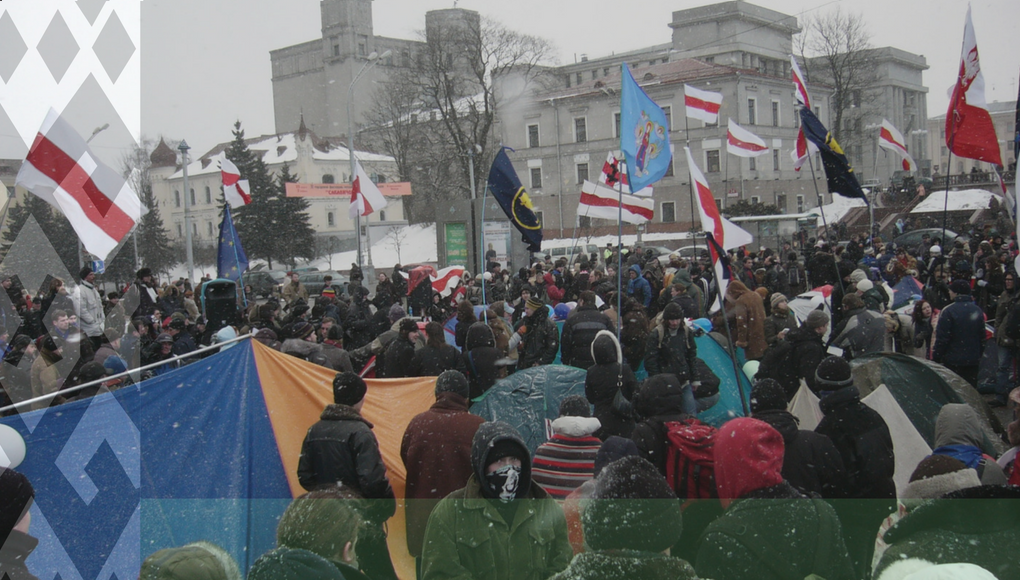Parasites Lost: Public dissent over the ‘Parasite tax' leaves Belarus facing an uncertain future

On a cold, otherwise unremarkable Friday in February, something extraordinary was happening in the Belarusian capital, Minsk. In the centre of the city a large crowd had gathered, 2,000 people waving banners and chanting slogans, the biggest such protest in six years and a rare display of open defiance in the post-Soviet state.
Belarus is one of the most repressive countries in the West, led by President Alexander Lukashenka, a man infamously branded “Europe’s last dictator” by former US Secretary of State Condoleezza Rice, where free speech and civil society are brutally suppressed, and an act of protest can leave you beaten, jailed or even killed. And yet, from Babruysk to Orsha, Brest to Rogachev a wave of demonstrations gripped the republic, with thousands taking to the streets.
The cause for this unusual act of popular dissent was opposition to a levy on those not in full-time employment, a so-called ‘parasite tax’. Lukashenka had signed the tax into effect in 2015, introducing measures that required those working less than 183 days per year to pay the government $250 in compensation for lost taxes.
This tax is simply intolerable for ordinary Belarusians, many of whom are desperately struggling to make ends meet.
This tax is simply intolerable for ordinary Belarusians, many of whom are desperately struggling to make ends meet. Belarus itself has been in recession since 2015, partly as a result of falling oil prices and the residual impact of the economic crisis in neighbouring Russia. With unemployment rampant, many are reliant on seasonal or part-time work, and even those who can find employment must make do with an average monthly salary a mere $380. The ‘law on parasites’, harking back to Soviet-era crackdowns on the jobless, was an act of coercion too far for an already struggling populace, and it was telling that many of those demonstrating in Minsk in February 2017 were not young idealists, but the middle-aged and elderly who felt they had no other option except to speak out.
However, as remarkable as these protests were, with crowds gathering regularly through February and March despite increasingly heavy-handed police tactics, one thing was even more astounding – they actually worked. On 9 March, President Lukashenka announced that he wouldn’t enforce the parasite tax in 2017, though he did stress that he wasn’t scrapping the measures, merely suspending them. Nonetheless, this was a rare victory for a beleaguered Belarusian opposition, and a sign that, if the appetite is there, public protest can achieve results – even in Belarus.
That said, there is no reason for Belarusian opposition activists to be overly optimistic. This brief dalliance with demonstrations is highly unlikely to be a catalyst for revolution and regime change. Indeed, while some protestors demanded Lukashenka’s resignation with startlingly bold and inflammatory slogans like “The President Is the Major Parasite", “Down with Lukashenka” and “We are not afraid”, no one should expect Europe’s last dictator to go quietly, or actually go at all.
Despite offering some limited concessions, Lukashenka has been belligerent in his response to the unrest, in March accusing a Western-backed "fifth column" of wanting "to impose tension in Belarus" and prompt an armed insurrection. These pronouncements marked a return to a crackdown on opposition groups in the country, leading to more than 150 people being detained between 1 and 20 March ahead of planned protests on Freedom Day on 25 March, an unofficial holiday celebrated by those opposed to the Belarusian government, when hundreds more were also arrested.
This seems like a reversion to type in a tightly controlled country largely frozen in its Soviet past, the snuffing out of any outwardly visible criticism of the government and its president. In truth, you would be hard pressed to find the desire for the a complete upheaval of Belarus’ antiquated authoritarian system amongst most citizens – in the words of Yaraslau Romanchuk, a Belarusian libertarian economist: ‘"If they were to get their $500 [salaries] back, most of the protestors would tolerate Lukashenka for the rest of their lives.”
Stability is the order of the day, and most Belarusians have been glad throughout the country’s post-Soviet history to accept the dictatorial regime of Lukashenka in return for a relatively untroubled existence. The issue is that when authorities are unable hold up their end of the bargain, this entire social contract collapses. The potential for spontaneous unrest in Belarus will surely continue as long as people, emboldened by anger and desperation, are motivated to take the risk of speaking out. "We have nothing left to lose," a protester told Radio Free Europe in March. “They can’t jail us all."
Against the backdrop of these protests is Belarus’ delicate position between East and West.
Against the backdrop of these protests is Belarus’ delicate position between East and West. On one hand, Lukashenka’s relationship with Russia, of whom Minsk has been a staunch ally since the collapse of the Soviet Union, has become decidedly frosty in recent years. Perhaps understandably unnerved by Moscow’s activities across the border in Ukraine, establishment of a security zone on the previously virtually open border, and threats over the limiting supplies of crude oil, Lukashenka has sought to assert Belarus’ independence by casting flirtatious glances to the West.
From criticising the annexation of Crimea to announcing visa-free travel for citizens from 80 countries, including the US, Lukashenka has sought to send a message to his Russian counterpart Vladimir Putin that his country is willing to establish closer ties with the West if it is in their national interest. However, this smacks of Minsk’s policy of playing Russia and the West off against the other – it’s something Belarus has been doing for years, but, as always, it remains a risky strategy.
While there are obvious benefits for Minsk to cosy up with Europe and the US, such a move would not come without consequences. Belarus and Russia have deep ties and the latter has its neighbour on something of an economic leash – not to mention the fact that Russia would hardly be willing for a country it sees as being firmly in its sphere of influence to turn westward without a fight.
There is also the argument that, despite coaxing Minsk towards them, demands of liberalisation and reform made by western countries are unlikely to be heard sympathetically by the Belarusian president. Rather than being a boon for protestors, Lukashenka’s current flirting with the West should be seen as a move in a long-running political game. It would be no surprise in the event of further protests threatening his rule that he would, as dictators are wont to do, mercilessly suppress them.
Nevertheless, Belarus remains a country at a crossroads – a restive populace demanding change will not be easily placated unless Lukashenka provides some tangible solution to the country’s economic woes. In that sense, Belarus occupies another space in the battleground between Russia and the West, two competing sides offering the country different paths to the stability it craves. However, in this competition for Belarus’ affections, there is only one likely winner. If times get any tougher for Lukashenka, he will most likely remain true to form, and in that instance, no amount of alluring promises from western countries will stop Belarus’ strongman from returning to Russia’s grateful arms.
